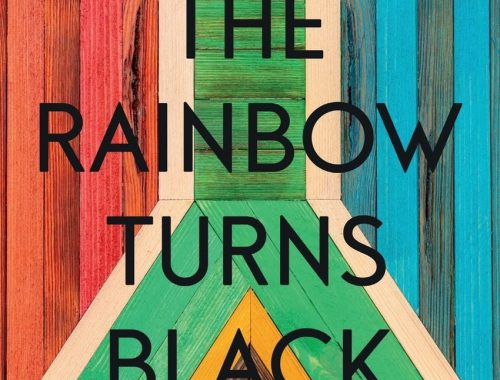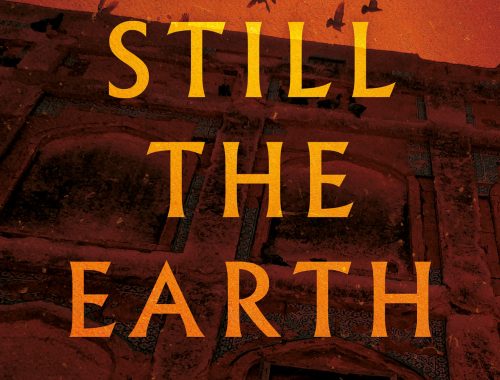The Glimpse

Claire Merle
In a near future, society is segregated according to whether people are genetically disposed to mental illness. 17-year-old Ana has been living the privileged life of a Pure due to an error in her DNA test. When the authorities find out, she faces banishment from her safe Community, a fate only thwarted by the fact that she has already been promised to Pure-boy Jasper Taurell.
Jasper is from a rich and influential family and despite Ana’s condition, wants to be with her. The authorities grant Ana a tentative reprieve. If she is joined to Jasper before her 18th birthday, she may stay in the Community until her illness manifests. But if Jasper changes his mind, she will be cast out among the Crazies. As Ana’s joining ceremony and her birthday loom closer, she dares to hope she will be saved from the horror of the City and live a ‘normal’ life. But then Jasper disappears.
Led to believe Jasper has been taken by a strange sect the authorities will not intefere with, Ana sneaks out of her well-guarded Community to find him herself. Her search takes her through the underbelly of society and into the pits of the human soul. And as she delves deeper into the mystery of Jasper’s abduction she uncovers some devastating truths that destroy everything she has grown up to believe, but she also learns to love as she has never loved before.
The economic collapse and the petrol wars took their toll on the mental health of the nation, triggering a “Mental Health Crisis” amongst the populous of the UK. Using the new science of gene mapping the Government took the drastic step of developing a diagnostic test for the genetic mutations responsible for the “Big 3” mental health conditions; schizophrenia, depression and anxiety. Following diagnosis the population was divided in two.
Deserting the countryside as unemployment became the norm and petrol became increasing more scarce, the population took refuge in the cities. Bequeathing the now overcrowded cities to the “Crazies”, the “Pure’s”, those without the genetic malformations, were relocated in to gated, protected communities, surrounding the city.
The “Crazies” eek out a hard existence under the constant threat that their or a family members status as “Sleeper”, those with the genetic malformation who are not yet ill, will be reclassified as “Active”, those with a mental illness, and forcefully admitted in to a “Loony dump”.
Despite being a talented musician and intelligent, inquisitive student, as a “Pure”, Ana has had her future plotted out for her. Contrary to any personal feelings she may have on the matter Ana will complete her education, consisting of home economic and child development classes, marry her childhood crush and produce lots of “Pure” babies, continuing the “Pure” line.
Receiving the shocking news that she has been living a lie and should not be living among the “Pures”. Ana accepts the conditions attached to her remaining within “the community”, including undertaking regular mental heath assessments and suppressing all expression of emotion, lest she be classified as “Active” and forced to join the Crazies she has been brought up to fear. The disappearance of Jasper, her intended spouse and the man on whom her future is dependent (feminism is indeed dead), provokes Ana in to action. Action which may see her thrown out of the community she is desperate to cling to.
A number of derogatory terms, are used in relation to mental illness throughout the text, many of which I have already repeated in this review, which some people may take offence to. In defence of the author, particularly to those who are not familiar with the dystopian genre (read definition of “Dystopian” here), I believe that the use of these terms and the treatment of the mentally ill within this work is in no way an endorsement for such behaviours or discrimination. It is a reflection of the warped society in which the book is set, and that the purpose is to induce outrage on behalf of the repressed members of that society, in this case the “Crazies” and to a certain extent the “Pure” women on their comfortable, yet restrictive pedestal.
Merle certainly doesn’t shy away from controversial topics. In addition to societies handling of mental illness Merle deftly touches on some interesting themes that a maturing readership may have never been exposed to before. Highlighting pharmaceutical development as big business, the questionable ethics of pharmaceutical company funded medical research and the practice prescribing of psychotropic medications to “troubled” children.
With any new fantasy, sci- fi or dystopian there is inevitably an immense amount world building and the need to introduce the fundamental elements of that world to the reader as quickly as possible. In the case of the Glimpse the author has resorted to one character giving an impromptu history lesson to another to describe the foundation on which the society is based, while this technique is a little frustrating at times I can understand and forgive the author for telling us, rather than showing us this history.
A confused science lesson about genetics had me raising an eyebrow and consulting with a friend to ensure that I had not somehow forgotten or misunderstood the basics of autosomal dominant and recessive conditions. However, the strength of this book is that once I had got beyond the information overload and confused science lesson of the first chapter, I was completely absorbed within the story and able to simply enjoy the ride.
And what a ride it was! Told in third person, and predominantly from Ana’s perspective (with a few tantalising glimpses from Jasper, Cole and Dr Barber’s perspectives) we observe as Ana develops from an intimidated, fearful, yet compassionate girl, to a more self aware, street smart confident woman. Along the way she comes to terms with her genetic inheritance, corrects her prejudiced misconceptions and falls in love.
I am really excited to see how Ana uses these life lessons in book two to affect a change within her society and I am hoping that we finally get introduced to the enigma that is the “Enlightenment project”.
Verdict: The UK setting is not the only frighteningly familiar element of this disturbing dystopian.
Reviewed by Caroline
Publication Date: June 2011
Format: eARC
Pages: 432
Genre: Dystopian, Romance
Reviewer: Caroline
Source: Netgalley
Challenge: Debut Author
You May Also Like

Adventures About to Begin
April 27, 2023
When The Rainbow Turns Black
November 25, 2022

7 Comments
Pruedence13
And there goes Caroline again adding another book to my “to read” pile. But that’s ok I’ll just forego sleeping! Sounds like a very intriguing book!
josie
i bought this book last week , i think i may read it sooner than later now !
Clover
Whoa. I had NO IDEA what this book was about until your review. Sounds like one I’d like to read! *adds to wishlist*
Annabelle H
I’ve seen this everywhere and it sounds so good! I will have to buy it soon!
Tasnim S
Love the cover of this one, so pretty!
Brodi Osborne
I hadn’t heard a lot about this book before now but after reading your review I’m definitely tempted to buy it!
Kerrie
I have this on my Kindle and after reading your review I am even more excited to read it!